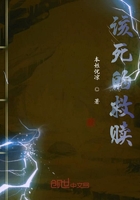"The last thing I remember," he said, "was seeing the drunken Prince of Kesh fighting with your son, that handsome, fiery-eyed Count Rames whom some fool, or enemy, had set to wait upon him at table. It was a dog's trick, Mermes, for after all your blood is purer and more ancient than that of the present kings of Kesh. Well, the horror of the sight of my royal guest, the suitor for my daughter's hand, fighting with an officer of my own guard at my own board, struck me as a butcher strikes an ox, and after it all was blackness. What chanced, Mermes?""This, Pharaoh: My son killed Amathel in fair fight, then those black Nubian giants in their fury attacked your guard, but led by Rames the Egyptians, though they were the lesser men, overcame them and slew most of them. I am an old soldier, but never have I seen a finer fray----""A finer fray! A finer fray," gasped Pharaoh. "Why this will mean a war between Kesh and Egypt. And then? Did the Council order Rames to be executed, as you must admit he deserved, although you are his father?""Not so, O Pharaoh; moreover, I admit nothing, though had he played a coward's part before all the lords of Egypt, gladly would I have slain him with my own hand.""Ah!" said Pharaoh, "there speaks the soldier and the parent. Well, Iunderstand. He was affronted, was he not, by that bedizened black man?
Were I in your place I should say as much. But--what happened?""Your Majesty having become unconscious," explained Mermes, "her Majesty the Queen Neter-Tua, Glorious in Ra, took command of affairs according to her Oath of Crowning. She has sent an embassy of atonement of two thousand picked soldiers to the King of Kesh, bearing with them the embalmed body of the divine Amathel and many royal gifts.""That is good enough in its way," said Pharaoh. "But why two thousand men, whereof the cost will be very great, when a score would have sufficed? It is an army, not an embassy, and when my royal brother of Kesh sees it advancing, bearing with it the ill-omened gift of his only son's body, he may take alarm."Mermes respectfully agreed that he might do so.
"What general is in command of this embassy, as it pleases you to call it?""The Count Rames, my son, is in command, your Majesty."Now weak as he was still, Pharaoh nearly leapt from his chair:
"Rames! That young cut-throat who killed the Prince! Rames who is the last of the old rightful dynasty of Kesh! Rames, a mere captain, in command of two thousand of my veterans! Oh, I must still be mad! Who gave him the command?""The Queen Neter-Tua, Star of Amen, she gave him the command, OPharaoh. Immediately after the fray in the hall she uttered her decree and caused it to be recorded in the usual fashion.""Send for the Queen," said Pharaoh with a groan.
So Tua was summoned, and presently swept in gloriously arrayed, and on seeing her father sitting up and well, ran to him and embraced him and for a long time refused to listen to his talk of matters of State. At length, however, he made her sit by him still holding his hand, and asked her why in the name of Amen she had sent that handsome young firebrand, Rames, in command of the expedition to Kesh. Then she answered very sweetly that she would tell him. And tell him she did, at such length that before she had finished, Pharaoh, whose strength as yet was small, had fallen into a doze.
"Now, you understand," she said as he woke up with a start. "The responsibility was thrust upon me, and I had to act as I thought best.
To have slain this young Rames would have been impossible, for all hearts were with him.""But surely, Daughter, you might have got him out of the way.""My father, that is what I have done. I have sent him to Napata, which is very much out of the way--many months' journey, I am told.""But what will happen, Tua? Either the King of Kesh will kill him and my two thousand soldiers, or perhaps he will kill the King of Kesh as he killed his son, and seize the throne which his own forefathers held for generations. Have you thought of that?""Yes, my father, I thought of it, and if this last should happen through no fault of ours, would Egypt weep, think you?"Now Pharaoh stared at Tua, and Tua looked back at Pharaoh and smiled.
"I perceive, Daughter," he said slowly, "that in you are the makings of a great queen, for within the silken scabbard of a woman's folly Isee the statesman's sword of bronze. Only run not too fast lest you should fall upon that sword and it should pierce you."Now Tua, who had heard such words before from Asti, smiled again but made no answer.
"You need a husband to hold you back," went on Pharaoh; "some great man whom you can love and respect.""Find me such a man, my father, and I will wed him gladly," answered Tua in a sweet voice. "Only," she added, "I know not where he may be sought now that the divine Amathel is dead at the hand of the Count Rames, our general and ambassador to Kesh."So when he grew stronger Pharaoh renewed his search for a husband meet to marry the Queen of Egypt. Now, as before, suitors were not lacking, indeed, his ambassadors and councillors sent in their names by twos and threes, but always when they were submitted to her, Tua found something against everyone of them, till at last it was said that she must be destined for a god since no mere mortal would serve her turn.
But when this was reported to her, Tua only answered with a smile that she was destined to that royal lover of whom Amen had spoken to her mother in a dream; not to a god, but to the Chosen of the god, and that when she saw him, she felt sure she would know him at once and love him much.
After some months had gone by Pharaoh, quite weary of this play, asked the advice of his Council. They suggested to him that he should journey through the great cities of Egypt, both because the change might completely re-establish his divine health, and in the hope that on her travels the Queen Neter-Tua would meet someone of royal blood with whom she could fall in love. For by now it was evident to all of them that unless she did fall in love, she would not marry.















